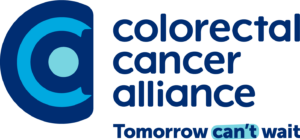Kibur Science Spotlight: March is National Colorectal Cancer Awareness Month
My best advice still is to stay current with screening exams…
Colorectal cancer is the third most common cancer diagnosed in men and women in the United States and is the third leading cause of cancer-related deaths in the country. Early screening and moves toward an overall healthier lifestyle have resulted in a steady decline in the number of newly diagnosed cases over the past several decades. Actor Chadwick Boseman’s death from colon cancer in 2020 brought attentionto the trend, reported recently by the American Cancer Society, that 20% of new colorectal cancer diagnoses were in patients under 55 in 2019, compared with 11% in 1995. Some 60% of new colorectal cancers in 2019 were diagnosed at advanced stages, compared with 52% in the mid-2000s and 57% in 1995, before screening was widespread.
Because of this worrisome trend, I strongly encourage all to stay current with their screening exams, either a colonoscopy or a molecular test like Exact Science’s Cologuard, as early detection makes treatment easier and durable. Without regular testing, cancer can sneak up on you and become harder to treat than if the tumor was detected at an early stage. That is what happened to me as I was diagnosed with Stage 3 colon cancer in 2019. There was no direct indication I had a tumor growing in my colon except for the occasional abdominal pain, which I attributed to indigestion, and I was between colonoscopy screens. Only when I found blood in my stool did I realize there was a bigger problem. I immediately went to my local hospital and a CAT scan revealed the tumor in my colon. Surgery removed the tumor and histopathology of the surrounding lymph nodes classified my tumor as Stage 3. I underwent adjunct chemotherapy for six months and subsequent CAT scans showed no signs of recurrence. The trajectory of my disease reversed recently when a routine CAT scan showed the disease had returned and metastasized to my liver and mesentery. Now I am back on chemotherapy to keep the tumors in check with the possibility of participating in a clinical trial testing a new CAR T cell treatment.
When I speak with colorectal cancer survivors, I have found my story is not unusual and it points out colorectal cancer can strike anyone at any time. We all ask ourselves “Why me?” and the answer is elusive. I had regular colonoscopies, my lifestyle didn’t suggest any factors which would make me at high risk for cancer but I have learned that I have a familial risk that was previously unknown to me. I suppose that is one of the ironies of life, but my best advice still is to stay current with screening exams and if you are at high risk, speak to your primary care physician about increasing the exam frequency from every 10 years to every 5 years. Stay well and stay healthy!
